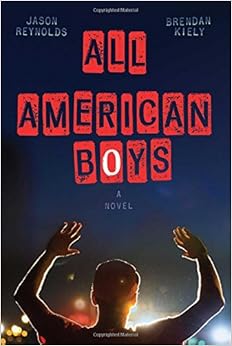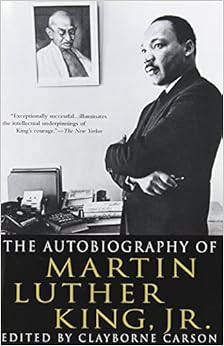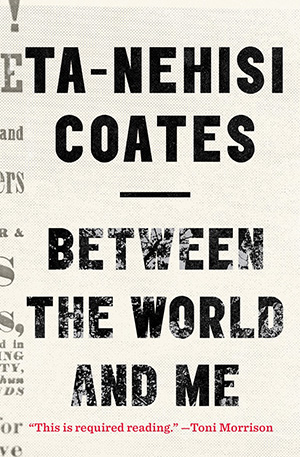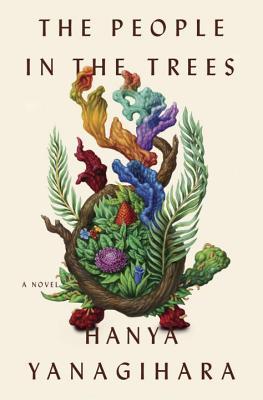Ana and I read
The People in the Trees, by Hanya Yanagahira, together a few months ago, and then spent quite a bit of time writing to each other in ALL CAPS and with lots of exclamation points. Then
Eva joined in and added a whole new level of complexity to our discussion, and the result was that we dissected this novel to a huge extent and the below discussion is full of massive spoilers. You will probably only want to read it if you have already completed the book, or if you, like me, don't really care about spoilers.
The People in the Trees is based on real events. The main character is Norton Perina, a brilliant but disturbing doctor who goes to a far-off, isolated island and discovers the secret to incredibly long life. But long life comes with a price, as so many things do. The novel explores Perina's life, the impact of colonization, the politics of power, and so much more. All with the help of two extremely unreliable narrators. It was one of the best books I've read this year and by far the most disturbing one to date.
Below is our detailed discussion. We hope you weigh in with your thoughts, too!
The People in the Trees by Hanya Yangihara is written in the form of the fictional memoirs of Dr. Norton Perina, a once renowned scientist who won the Nobel for seemingly uncovering the secret of eternal life, but who has now fallen into disrepute. Perina has been convicted for sexual abuse; in the introduction, written in the voice of Perina's friend and defender Dr. Ronald Kubodera, we're told he's writing his memoirs in prison. The narrative then goes back to young Norton's life, particularly focusing on his expedition to the remote Micronesian island of Ivu'ivu, the discovery that followed, and its far-reaching consequences for the islanders.
In the discussion that follows, we try to make sense of this novel's fascinating horrors. Be warned that some spoilers will be inevitable.
Ana: The People in the Trees has not one but two unreliable narrators, and I found it as troubling as it was accomplished and difficult to put down. I've seen it compared to Lolita on more than one occasion, and now that I've read it I can see why that's apt. Shall we start by talking about the two narrators, Perina and Kubodera, how their biases show, and what they might be hiding from the reader?
Aarti: Yes! I’ll start with Perina, since his narration is more apparent to the reader. It’s always tricky with an unreliable narrator as you don’t know what he’s misconstrued or left out completely. What was interesting to me about Perina was what he chose (I assume) not to leave out or misconstrue. For example, he had no concerns about sharing with readers his treatment of his children because he didn’t think there was anything wrong with it. He also seemed to feel no guilt about his treatment of the original Ivu’Ivuians that he brought to the US, even though their treatment was horrific. It all ladders up to him coming across as a complete sociopath, so I wonder if there were any key scenes that he did present to us inaccurately (the gang rape ones immediately leap to mind, particularly as Esme reacted so differently to them).
Kubodera is a tougher nut to crack because so much of his work is invisible to us. He claims that he only made grammatical changes and removed that one section near the end (which was then provided to readers later). But is that true? Considering the hero worship, I think it unlikely. But, again, if Kubodera wanted to show us Perina in a positive light, then he probably would have edited more heavily. What was his motivation? Perina never once mentions Kubodera in his whole narrative, and Kubodera admits that he only recently learned that Perina had a brother, and yet Kubodera claims to have known Perina very well. And, based on the way the book ends, the two clearly had a strong enough relationship to elope together. So did Kubodera edit himself out of the story? Or is Perina just so self-absorbed that he would leave out someone so integral to him? Or is Kubodera just not that important to Perina except as an escape mechanism?
Ana: I do wonder if Kubodera's feelings for Perina are meant to echo Perina's feelings for Tallent, the anthropologist he follows in his first expedition to Ivu’Ivuians.
Aarti: Oh, that’s a brilliant suggestion! I never thought of that but it would be a nice parallel. The aloof, just out of reach mentor. Though Kubodera was more successful in pinning his unicorn down vs Perina losing Tallent forever.
[I do think Tallent would include Perina in his narrative (not very positively). We’ll have to talk about Tallent later, too. So many things to talk about.]
Ana: The fact that Perina never mentions his most ardent defender in his narration suggests that he's far more important to Kubodera than Kubodera is to him, and I wonder if there's a side of unrequited love in there along with the hero worship. At the end of the book I almost felt sorry for Kubodera -- his rape apology is of course horrifying, and in his own way he's as unpleasant a character as Perina. But it does seem to me that Perina is using him to escape, and I can't imagine they have much of a future together.
To go back to your earlier questions, I do wonder if Kubera's lack of heavier editing is as much a reflection of his worldview as Perina's casual admission of his atrocities towards the Ivu’Ivuians or his children (or his recurrent misogyny, which I'm sure we'll discuss in more depth later). I wonder if, because he's a contemporary man, he's more aware than Perina of how those admission would be judged by the world at large. But his decision to include Perina's descriptions of how he sexually assaulted Victor in the end makes it clearer than ever that he still thinks he's in the right. The fact that these two men don't see much wrong with what they admit to shows readers how pervasive their worldview is, and how convinced they are that treating people as things is simply your prerogative if you're a supposedly brilliant man.
Aarti: Yes, exactly! This whole belief they justified that science must move forward regardless of any associated costs was just horrifying to me. The guiding principle of medicine is “do no harm,” and yet all Perina ever did, to everyone he came across, was harm. For example, note how he completely skims over the work he was doing with pharmaceutical companies to achieve immortality, so that it comes across like he was only ever after the science (even though he clearly had enough money to adopt so many children). And the way he withheld the information about long life being accompanied by a complete degradation of mental faculties, which I assume is the main reason he kept the Ivu’Ivuians imprisoned.
And when you think about it, really, what impact did Perina have on the world? Kubodera describes him as a genius, almost too good for the world at large, but nothing he did had a positive lasting impact.
Ana: I remember reading in a comment somewhere that it was interesting that Perina was the only one to report the Ivu’Ivuian rape ceremony. We have Esme's reaction to his account of it, and then he takes her to see it another night, but he claims that afterwards she "refused to talk about it" and made no mention of it in any of her books about the island. So all we have is Perina's word that Esme was there at all. For a while I was convinced that what would happen in the end would be that Perina would use the ceremony to "break" Victor, and justify his sexual abuse to himself to his readers that way. But he doesn't even feel the need to justify it -- and to be honest, I can't decide which one of the two would be worse.
Aarti: I was expecting that, too. That he would say he was keeping the culture alive for his children in as many ways as he could and ignoring the fact that he was not, in fact, part of that culture, and watching one event with zero context does not make him an expert in it.
I disagree with your comment that Perina didn’t feel the need to justify his behavior, though, at least for that one moment. To clarify, I agree with you that he didn’t feel at all guilty. But I feel like the way he described the incident (and I’m going from memory, so I may be off), he talked about how much fear and resistance the boy (what was his name?) put up against him, and then how he covered the boy’s mouth to stifle his screams and explained how much he loved him. Based on that behavior, he knew he was doing something evil, and that by sharing the story, he had to account for why. From what I recall, it was almost like a corruption of the white man’s burden - he was trying to tame this boy, and the only way he knew how to do it was with this savage, brutal behavior. Kind of like Heart of Darkness, instead of sharing the polite, civilized world of western civilization with the boy, he had reverted and become more beastly himself to establish his own superiority. Does that make any sense?
Ana: Yes, I see what you mean, though his account of it is so horrifying that it takes a sociopath to think it could come across as anything other than what it is. Of course, that's exactly what Yanagihara is doing -- to give readers a glimpse of what the world looks like through the eyes of a sociopath like Perina by making us engage with the story from his perspective, and then read between the lines for what he left out.
For example, all through the novel I wanted to get a better sense of what the other characters might be like without the mediation of Perina's perspective, and without his no doubt countless omissions. To go back to Esme, Perina makes it sound like her view of the Ivu’Ivuians is shaped by "Noble Savage" ideas, which in the end are of course as racist and dehumanising as his own. He strongly implies that this is why she leaves the rapes out of her books and refuses to discuss them -- they don't fit with her preconceptions of a peaceful and idealistic "primitive" society, and so she edits them out of her reality. But of course we don't know whether that really is the case, because all we have is Perina's word. Perina's perception of Esme is distorted by many things, particularly his possessiveness towards Tallent and his blatant misogyny. Here's his description of Esme at one point during their first excursion:
I did not look at her, but around her seemed the sickening scent of menstrual blood, a tinnily feminine smell so oppressive that it was a relief finally to begin the day’s climb and to find it vanishing slowly into the odors of the jungle. And from then on I was unable to look at her without thinking of oozing liquids, as thick and heavy as honey but rank and spoiled, seeping from her every hidden orifice.
That right there tells us everything we need to know about his worldview, and about how much his assessment of a woman anthropologist's work can be trusted.
Aarti: Yes, I completely agree. It’s frustrating that we don’t get a sense of the facts at all, just his interpretation of them. It’s like trying to drive in a heavy fog; you really have no idea of the context. I wish there were more women in the book that we could use as a gauge, but of course, there are none because Perina pretends they don’t exist. The only one we get is his mother, and he was quite cruel to her, too.
His relationships with Esme and Tallent was very difficult to unravel. Esme completely disappears from the narrative after that first trip to the island (except for that brief meeting back in California), and Tallent is more present in Perina’s dreams than in the flesh. But then, everyone seems to disappear from Perina’s narrative. We never hear about the original Ivu’Ivuians except for their horrible mistreatment, we barely know the names of any of the children Perina adopted (and I doubt that the adoption stories happen at all in the way that he describes them), Kubodera is not mentioned at all, and Perina’s brother is just a voice on the phone more than a tangible being. It’s almost as if the further Perina goes into the science, the more he forgets about the human element and just leaves it behind. I don’t know if I am explaining this well at all, but at the beginning of the book, many more characters had distinct personalities and physical descriptions; by the end, that seemed to be hardly the case at all.
Ana: Yes, I know exactly what you mean. And I think that's something Yanagihara is probably doing deliberately, because one of the key themes of The People in the Trees is dehumanisation and what happens when it's taken to its final consequences. Perina sees his co-workers, the Ivu'Ivuians and ultimately his children as things he can use and then cast aside; as tools as his disposal to help him achieve his goals rather than as human beings. For example, here's a revealing and disturbing passage about his adoptions that I bookmarked:
Shall I tell you how with each new child I acquired, I would irrationally think, This is the one. This is the one who will make me happy. This is the one who will complete my life. This is the one who will be able to repay me for years of looking.
Shall I tell you how I was always wrong--eighteen, nineteen, twenty times wrong--and how although I was always wrong, I didn't stop, I couldn't stop, I was searching, searching, searching.
Even his choice of verb -- "acquire" -- is immensely revealing. You acquire things, not children. He describes the growth of his family as a shopping compulsion, and that alone tells us everything we need to know about how he sees his children.
We haven't yet said much about how the novel deals with western imperialism, though there's plenty to discuss. There are the consequences of Perina's discovery on the island and what he sees as he goes back year after year; there's Victor's rejection of his westernized name; there's the horrible fate of the Ivu'Ivuians when they're forcibly removed from their home. Do you have any thoughts you want to share?
Aarti: Oh, I have so many thoughts, but I probably can’t share them all! Probably anyone who reads my blog or knows me will know that I have pretty strong opinions on imperialism and its effects on cultures and lifestyles, both good and bad (but mostly bad). I don’t know that I can say much that is new except that Yanagahira makes her views on imperialism pretty obvious in this book. Not only is there the destruction of an entire culture and way of life, there’s the extinction of a beautiful and peaceful animal, all the vices and problems that come when one person becomes very, very rich at the expense of other people, and all the rest of the horrible baggage that comes along with imperialism.
But I think what was most telling for me (and is particularly relevant now, especially given recent events in the US) was Perina’s COMPLETE lack of accountability. He refused to accept that he had anything to do with the the stampede on Ivu’Ivu, even though he was a pretty direct cause, and he kept setting himself up as some sort of savior rather than a culprit. It’s as though he was telling a very different story than the one I was reading, and I think that explains colonialism in a nutshell.
What do you think of Yanagahira’s strategy in doing this? She seems to have set up Perina as the human embodiment of colonialism - a man who thought only of the benefits to himself and not of the consequences to other people. Do you see anywhere that she gave Perina (and perhaps western Imperialism) the upper hand or the benefit of the doubt? Or was everything just completely corrupted?
Ana: I really couldn't see anything about it that wasn't awful: what we see in what happens Ivu'Ivu is a perfect example of unshackled greed at work, be it for money (in the case of the big corporations who come in search of the turtles) or, in Perina's case, greed for glory and recognition.
Since we started this discussion, Eva shared an interview with us that possibly casts Yamagihara's authorial intent in a different light:
Gajdusek’s story fascinated me. Here was an indisputably brilliant mind who also did terrible things. It’s so easy to affix a one-word description to someone, and it’s so easy for that description to change: if we call someone a genius, and then they become a monster, are they still a genius? How do we assess someone’s greatness: is it what they contribute to society, and is that contribution negated if they also inflict horrible pain on another? Or—as I have often wondered—is it not so binary?
What do you make of her statement, particularly in relation to how Perina is portrayed in the novel?
Aarti: Ohmigoodness, so much inner turmoil after seeing that statement. I agree with Yanagahira that nothing is binary, but I also don’t think Perina had any redeeming features, so for him, I think monster is a pretty accurate term. He did nothing to improve anyone’s lives, and did much to ruin many people’s lives. As Eva said in our offline discussion:
“What’s weird to me is that her fictional scientist *doesn’t* help millions of people. Like, if his research had provided a cure to Alzheimer’s or dementia or cancer or something, that would provide a bit more of an argument the other way. But my impression from reading is that the island was wasted, and the people destroyed, and nothing came of it.”
Which, YES, exactly. Personally, I see nothing redemptive there to tip him into the “genius” category.
Ana: Yes, it's a challenging one to make sense of. I don't want to dismiss the ambiguity Yamagihara hints at entirely, because I know it's possible to have a meaningful relationship with the work of someone whose actions you absolutely don't condone. My experience of this is in the arts more than in the sciences, but it's fundamentally the same thing: there are books that were important to me before I found out awful things about their authors. My relationship with their work continues to exist, even if I choose not to support them in the future (and that's always going to be a very personal decision -- different people draw the line differently). It's not so much that I separate the two in my head, but the two sets of feelings can exist side by side.
However, like you I had trouble seeing it here, for a few different reasons. First because I was also at a loss when it came to identifying a positive side to Perina's work; secondly and even more importantly, because his work is impossible to separate from the colonial impulse that does so much damage to Ivu’Ivu. It's not that the latter was an unintended consequence of his intellectual curiosity and quest for knowledge -- it's that the two are one and the same.
So to me this was one of those cases where I reminded myself that books belong to their readers. I don't know what Hanya Yanagihara intended when she wrote The People in the Trees, but to me it reads like a chilling denouncement of a worldview that costs people their lives, and of all the internal justifications that accompany. That's what I found so powerful, and that's what's going to stay with me.












